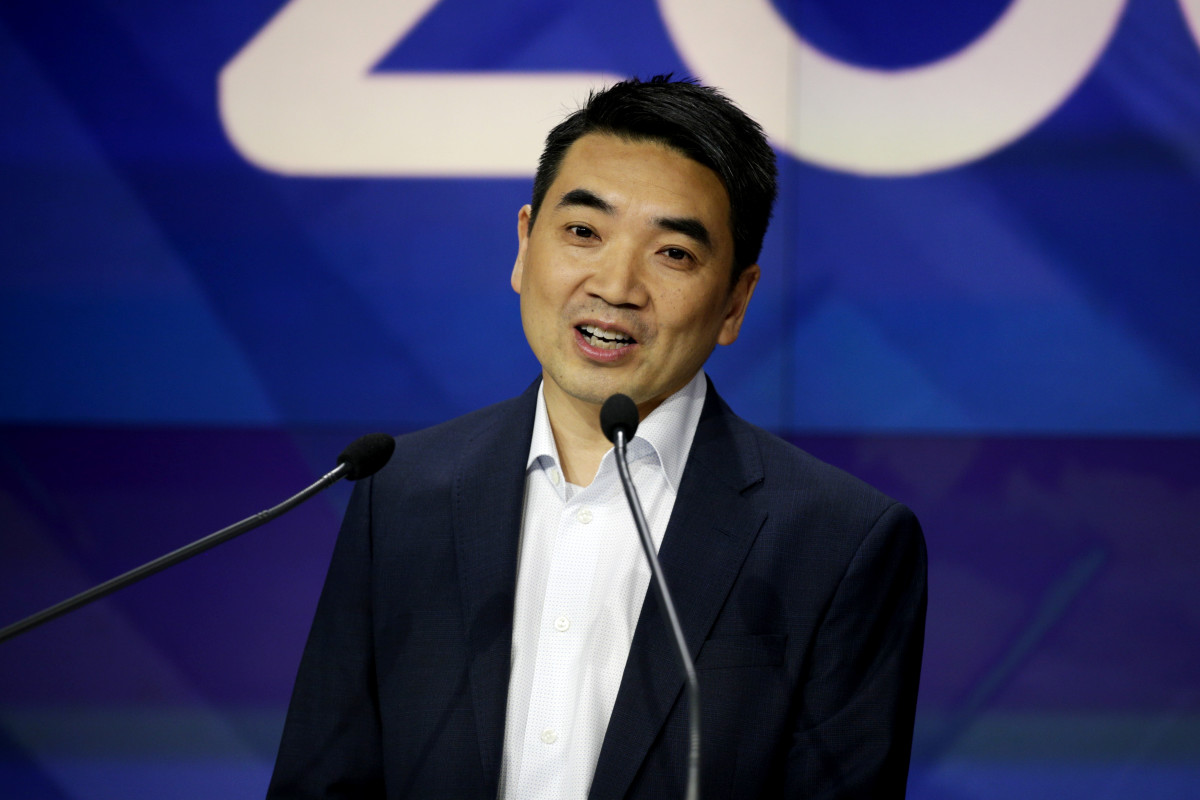
Zoom (ZM) CEO Eric Yuan knows that employees despise long meetings, so he is creating an unconventional solution to solve the problem. The CEO is developing a “digital twin,” an avatar powered by artificial intelligence, that employees can use to attend meetings for them while they enjoy more free time, according to a new interview Yuan did with The Verge.
“We all spend a lot of time either making phone calls, joining meetings, sending emails, deleting some spam emails and replying to some text messages, still very busy,” said Yuan in the interview. “How [do we] leverage AI, how do we leverage Zoom Workplace, to fully automate that kind of work? That’s something that is very important for us.”
Related: Airbnb CEO reveals a major mistake during pandemic layoffs
Yuan claims that the digital avatar will be a digital version of a person’s self that can not only attend meetings on an individual’s behalf, but can also read emails, take phone calls, tackle creative tasks and even participate in making decisions.
“Let’s say the team is waiting for the CEO to make a decision or maybe some meaningful conversation, my digital twin really can represent me and also can be part of the decision making process,” said Yuan.
Yuan said that he is “not happy” with his current calendar for work which consists of “nine or 10 meetings.” He claims that the digital avatar can act as a personal assistant and cut some of those meetings out of the schedule.
“Every morning I wake up, an AI will tell me, ‘Eric, you have five meetings scheduled today. You do not need to join four of the five. You only need to join one. You can send a digital version of yourself,’” said Yuan. “For the one meeting I join, after the meeting is over, I can get all the summary and send it to the people who couldn’t make it. I can make a better decision. Again, I can leverage the AI as my assistant and give me all kinds of input, just more than myself. That’s the vision.”

He claims the avatar will most likely start out as a “voice” and will evolve into an “immersive” experience similar to Vision Pro and Meta Quest 3. The goal is for it to eventually be a “3D version of yourself that can mimic you very well,” so much so that people won’t be able to tell the difference between you or your avatar.
He also predicts that in five or six years, AI will be able to tackle 90% of an employee's workload, leaving them to have more free time and possibly even shorter workweeks.
“Why do we need to work five days a week? Down the road, four days or three days,” said Yaun. “Why not spend more time with your family? Why not focus on some more creative things, giving you back your time, giving back to the community and society to help others, right? Today, the reason why we cannot do that is because every day is busy, five days a week. It’s boring.”
Related: Spotify CEO is shocked by negative impact of recent layoffs
The average amount of time workers in the United States spend on meetings can be excessive. According to a 2022 survey by software company Dialpad, which polled 2,800 U.S. employees, about 46% of respondents said that they spend less than less than four hours weekly in video conferences, and almost 37% said they spend four to 12 hours a week in meetings.
Even though AI has often been teased as a way to help employees tackle heavy workloads at their jobs, there is a level of concern amongst workers that the technology will have the potential to replace them at work.
According to a recent survey from market research company YouGov, more than one-third of workers in the U.S. are concerned that AI will result in job loss or cut work hours. About 56% of workers in the survey believe that AI will shrink the amount of job opportunities, and 55% think that their work hours will be cut due to the technology.
More Labor:
- Dropbox CEO believes that return-to-office mandates are toxic
- Job recruiter goes viral for revealing how applicant lost the job
- Employees of bankrupt retailer forced to kick customers out of store
Related: Veteran fund manager picks favorite stocks for 2024







